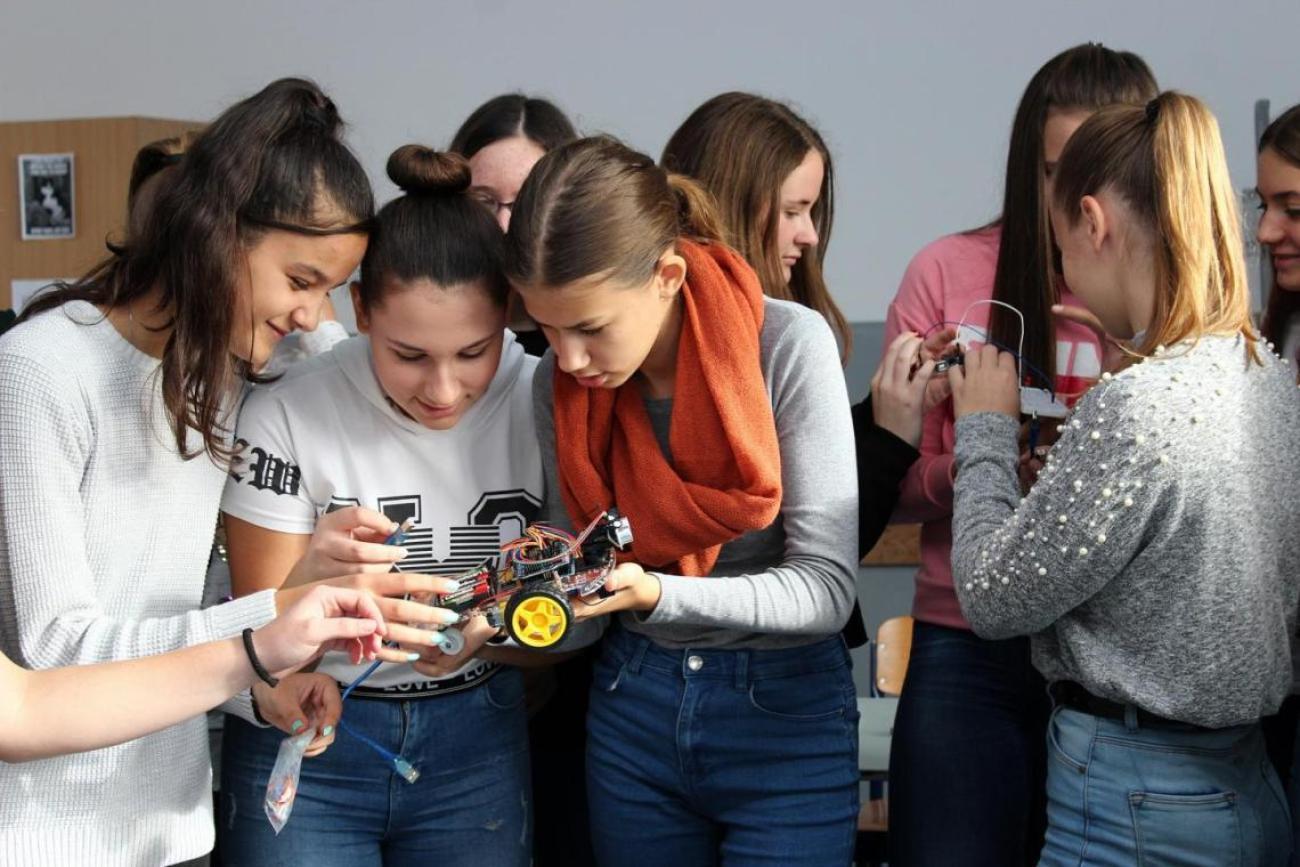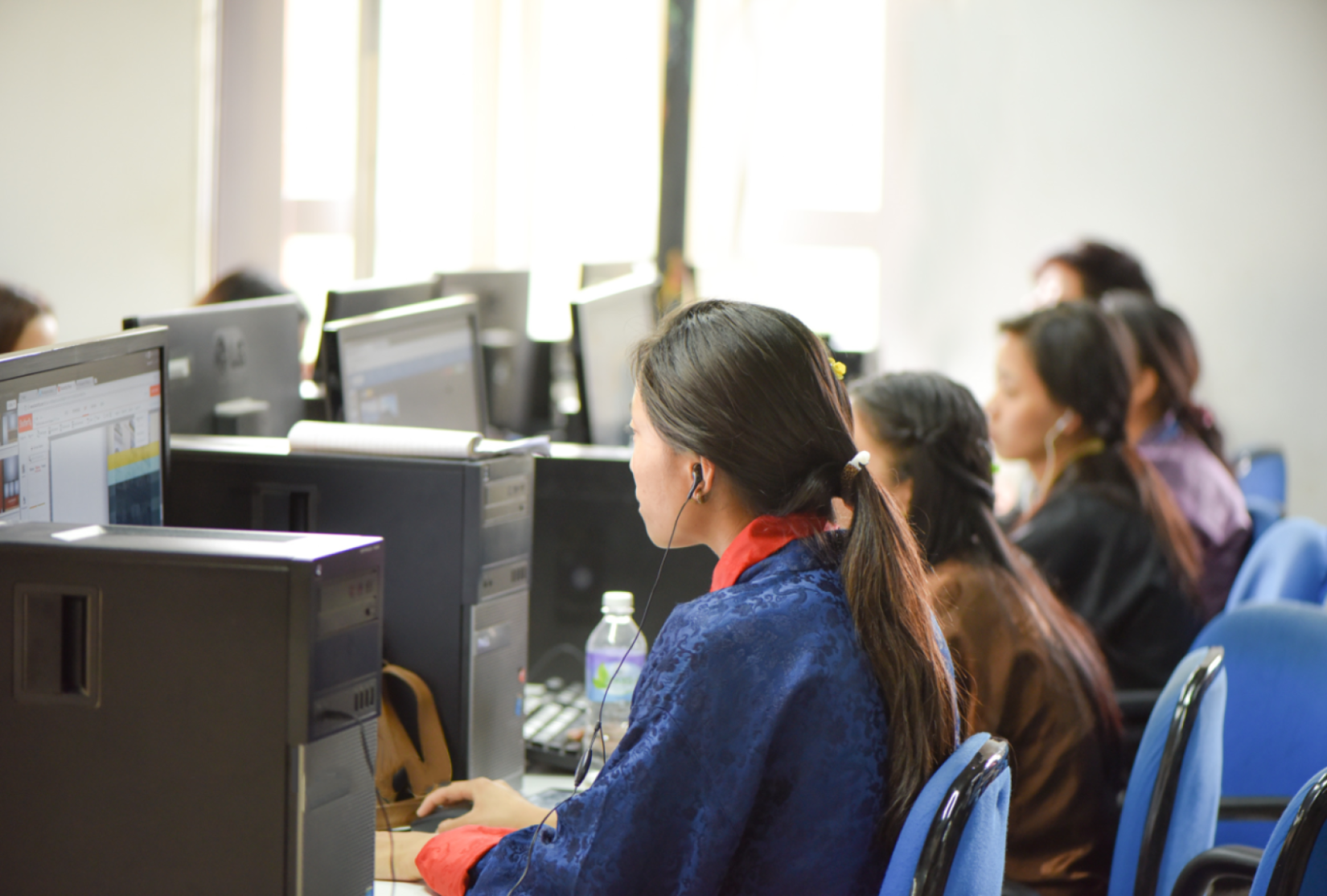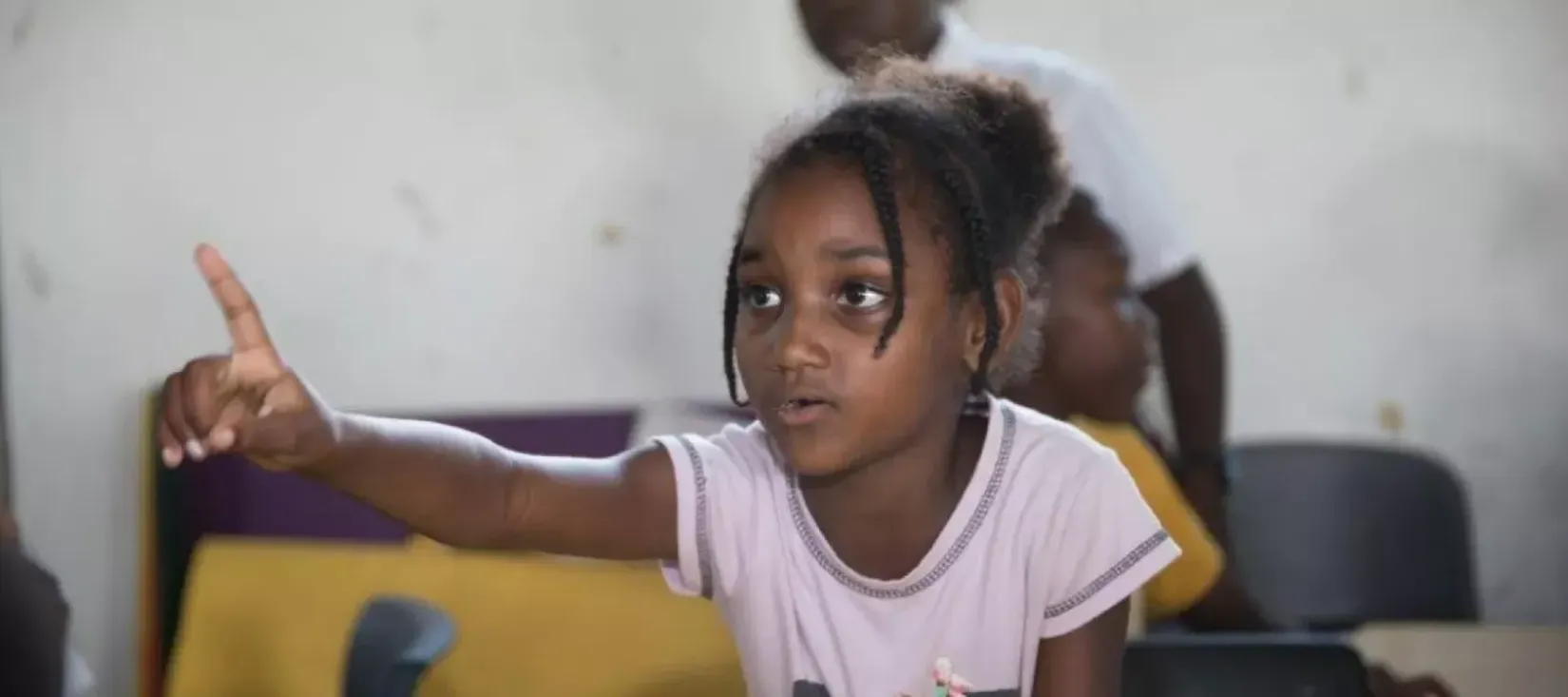Transforming Education: UN Country Teams Leading the Charge

In 2022, the United Nations Secretary-General convened the Transforming Education Summit to address a global crisis in education quality, equity, and relevance.
While the Summit brought much-needed attention to the issue, significant challenges remain. Two years on, many countries are still far from achieving the Sustainable Development Goal 4 (SDG4) target of universal access to quality education.
In response, the Secretary-General is convening a Special Event on Transforming Education on 11 July 2024, in collaboration with the President of the UN General Assembly and the President of the UN Economic and Social Council—to push for greater commitment and action to transform education as a catalyst for achieving the SDGs.
Across the globe, we witness the transformative power of education. The UN is firmly committed to ensuring everyone, regardless of background, gender and economic status, has access to quality learning opportunities. UN Country Teams, led by Resident Coordinators, play a critical role in supporting Governments in different social and economic contexts in driving progress through policy shifts, more and better investments, and innovative solutions, recognizing that education is not just a goal in itself, but a catalyst for achieving other development transformations.
Bosnia and Herzegovina: Unifying Education for a System’s Reform
Bosnia and Herzegovina's education system has grappled with deep-rooted, systemic challenges for decades. A highly decentralized structure has led to fragmented policies and efforts, compounded by outdated infrastructure, declining student enrolment, and below-average proficiency levels among students.
The COVID-19 pandemic exacerbated these challenges, disrupting the education of over 400,000 students and highlighting the need for urgent reform. Recognizing the opportunity for change, UN agencies, led by the Resident Coordinator and with the United Nations Children's Fund (UNICEF) and United Nations Educational, Scientific and Cultural Organization (UNESCO) at the forefront, prioritized education as a focus of their COVID-19 recovery efforts. The joint programme 'Reimagine Education for Marginalized Boys and Girls’ provided training to teachers and trainerson digital learning in primary and secondary schools including in technical and vocational education and training. The programme also equipped schools with digital devices and strengthened collaboration and coherence between education authorities and other stakeholders.
The enhanced collaboration between education authorities, coupled with the resources and training provided by the UN, led to the development of a common country-wide policy position and roadmap on education, the first in twenty years. This roadmap, endorsed by all 16 Ministers responsible for education, outlines a comprehensive plan for transforming the education sector and demonstrates the transformative power of improved collaboration and UN coordination.
The UN remains dedicated to supporting the implementation of these policy reforms, with a vision of a more inclusive, high-quality, and relevant education for all students. With the support of the European Union, the UN team is assisting education authorities in developing action plans for a transformation of the education system that will accelerate progress towards both the SDGs and the country’s EU accession path.
Bhutan: Embracing Digital Transformation for a Sustainable Future
Bhutan's rapid digital transformation is not merely about connectivity; it's about leveraging technology to drive sustainable development and empower educators. With internet connectivity now in every school and 87 per cent of the population online, exceeding the global average, Bhutan is well-positioned to harness the power of the digital transformation in education. The UN team in Bhutan, under the Resident Coordinator's leadership, is playing a pivotal role in guiding this progress.
The UN is actively supporting Bhutan's digitalization in education initiatives aligned with the country's National Digital Strategy and 13th Five Year Development Plan. These initiatives empower young people with digital skills through programmes like UNICEF’s ‘UPSHIFT’, a global innovation programme that builds transferable skills for adolescents and young people. These skills are being developed and put to use in innovative ways, such as developing tools to mitigate human-wildlife conflict, a crucial issue for Bhutan's rural communities. Moreover, the increased accessibility of digital education is encouraging more girls to pursue careers in science, technology, engineering, and mathematics fields, promoting gender equality and fostering a new generation of innovators.
The UN's partnership with organizations like the public agency GovTech is also instrumental in advancing digital transformation, such as expanding online learning, strengthening data security and privacy, and securing intellectual property rights. This comprehensive approach is contributing to Bhutan's ambitious goal of achieving high-income country status by 2034, demonstrating that strides in the digital sphere is not just about economic growth but also about social progress on many fronts including education.
Pursuing Bhutan’s commitment at the 2022 Transforming Education Summit, the UN will also continue to support the Ministry of Education and Skill Development to reinforce teachers’ professional skills and competencies in line with recognized standards for educators to deliver 21st century knowledge and skills.

Rwanda: Investing in Foundational Learning to Drive Economic Growth
In Rwanda, education is regarded as the cornerstone of the nation's development aspirations. The Government, in collaboration with the UN, is making substantial investments in education, focusing on foundational learning and empowering children to become active and productive members of society. Key initiatives include connecting all schools to the internet by 2024 and providing comprehensive e-learning training for teachers, ensuring that Rwanda's education system is prepared for the digital age. Additionally, there is a robust emphasis on promoting girls' participation in science, technology, engineering, arts and mathematics fields to advance gender equality in education.
Despite these ambitious goals, Rwanda faces systemic challenges that hinder progress. These include capacity gaps among teachers, infrastructure limitations, and the need for sufficient teaching and learning materials. The Government remains committed to addressing these issues by leveraging internationally-recognised and locally-developed assessment policy frameworks and tools. These tools support comprehensive assessments to enhance learning outcomes.
Rwanda's strategy for policy transformation addresses foundational learning needs from early childhood through primary education. This includes improving instruction quality, implementing a competence-based curriculum, providing high-impact materials, and mobilizing community support. By prioritizing these areas, Rwanda aims to establish a strong educational foundation for sustainable development that empowers children and young people to thrive in a competitive, knowledge-based economy.
The UN is crucial in bolstering these efforts. By providing technical assistance, resources, and expertise, the UN aids the Government in building a robust and inclusive education system that aligns with the nation's development goals. The collaboration between the UN and the Government is instrumental in driving forward initiatives that aim to improve educational quality and accessibility, ultimately contributing to Rwanda's aspiration of becoming a middle-income country by 2050.
Trinidad and Tobago: Ensuring a Modern Education for All
Trinidad and Tobago is on a path towards educational transformation, recognizing the need to modernize its education system to meet the demands of the 21st century. The Government, in dynamic partnership with the UN, is prioritizing digitalization and sustainability in education, committing to leave no child behind.
With UN support, the Ministry of Education is equipping schools with digital devices and developing online content to enhance the quality of education and prepare students for the future job market. Significant progress is being made to improve access for marginalized groups, including persons with disabilities, refugees, and migrants. UN agencies are working together to ensure the voices of persons with disabilities are heard in policymaking, proposing changes to both the Education Act and the Equal Opportunities Act.
Throughout 2023, strategic UN initiatives also complemented the Government’s efforts to integrate refugee and migrant children into the public education system. These initiatives include supporting access to primary and secondary online learning platforms, providing cash grants to cover educational expenses, and offering innovative educational alternatives. The UN system also collaborated with the Ministry of Labour to address child labour, ensuring children’s development and education are not impeded. There is also a focus on sustainability with the promotion of green schools and the use of renewable energy sources.
However, maintaining the digital infrastructure and ensuring that teachers are adequately trained to utilize online resources are ongoing concerns. Additionally, efforts to integrate them and address the specific needs of the influx of migrant children from neighbouring countries has put a strain on the education system.
Despite these challenges, Trinidad and Tobago's commitment to educational reform is clear. The Government's focus on digitalization, sustainability, and inclusivity reflects a holistic approach to transforming education, ensuring that all students have the opportunity to succeed.

Arab States: Partnering for Transformative Education
Countries in the Arab Gulf are experiencing rapid growth and progress, but their education systems need to adapt to prepare citizens for the demands of the times. This requires innovative approaches, best practices in teaching and learning, and the integration of new technology. Recognizing this need, UNESCO is actively engaged in promoting Transformative Education across the Arab region, focusing on equipping young minds with the tools, values, knowledge, and attitudes necessary to drive positive change and foster just, inclusive, and sustainable societies.
UNESCO is working with higher education institutions across the Arab States to develop and implement university courses on Transformative Education for pre-service teacher training. This initiative aims to institutionalize Transformative Education within the fabric of education, ensuring that future generations of teachers are equipped to empower their students for the challenges of the future.
Furthermore, UNESCO has facilitated the creation of a network of universities across the Arab and European regions to advance Transformative Education collaboratively. This network, which includes Saint-Joseph University in Lebanon, Institut Supérieur des Cadres de l’Enfance in Tunisia, Sultan Qaboos University in Oman, and the UNESCO Chair in Global Citizenship Education in Higher Education at the University of Bologna, Italy, is developing a joint action plan and seeking to establish a ‘UNITWIN’ university network. The launch of the UNESCO publication "Including Transformative Education into Pre-Service Teacher Training: A Guide for Universities and Teacher Training Institutions in the Arab Region" is another significant step in this direction. This resource provides faculty deans and academia with practical guidance on incorporating transformative courses into pre-service teacher training programmes.
Through these initiatives, UNESCO is playing a crucial role in transforming education in the Arab region, ensuring that learners are equipped with the skills and knowledge needed to thrive and contribute to the sustainable development of their societies.









